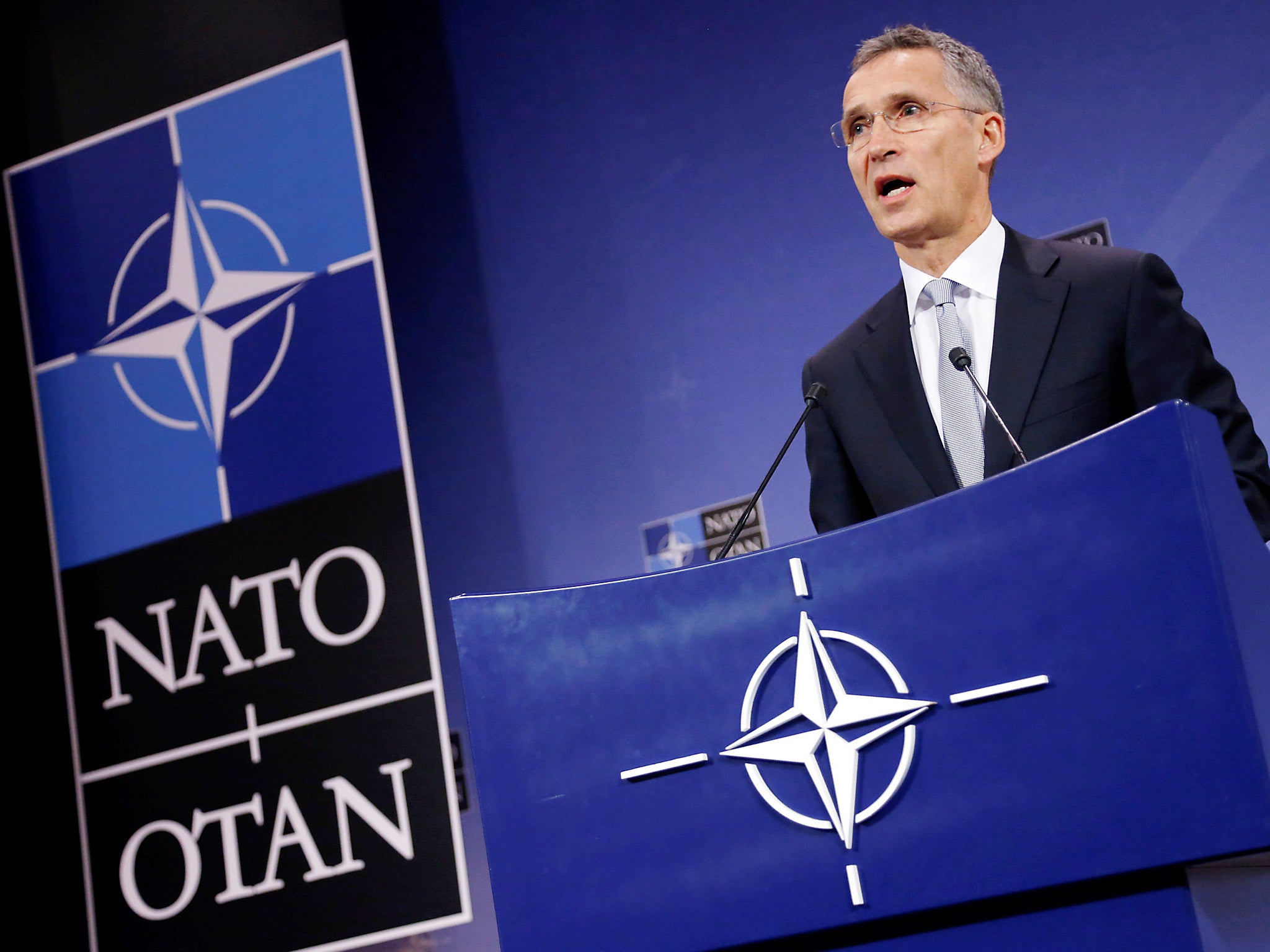Nato chief labels foreign interference in elections 'unacceptable' amid claims of Russia hacking
Jens Stoltenberg warns of cyber attacks against 'many Nato allies'

Your support helps us to tell the story
From reproductive rights to climate change to Big Tech, The Independent is on the ground when the story is developing. Whether it's investigating the financials of Elon Musk's pro-Trump PAC or producing our latest documentary, 'The A Word', which shines a light on the American women fighting for reproductive rights, we know how important it is to parse out the facts from the messaging.
At such a critical moment in US history, we need reporters on the ground. Your donation allows us to keep sending journalists to speak to both sides of the story.
The Independent is trusted by Americans across the entire political spectrum. And unlike many other quality news outlets, we choose not to lock Americans out of our reporting and analysis with paywalls. We believe quality journalism should be available to everyone, paid for by those who can afford it.
Your support makes all the difference.The Secretary General of Nato has called any attempts to influence foreign elections “unacceptable” amid allegations that Russia supported cyber attacks to aid Donald Trump.
Speaking after a meeting with the Prime Minister of New Zealand, Jens Stoltenberg said Nato had created a team of experts to be deployed to any allies under attack.
“We are concerned about cyber security and we have seen reports about cyber attacks against many Nato allies,” he added.
“Any attempt to intervene or to influence national elections from outside is unacceptable. That’s also one of the reasons why Nato has focused on strengthening our cyber defences.”
The Russian government has denied any role in the alleged hacking or any other interference, including an allegedly withheld file of compromising information on the President-elect.
Vladimir Putin’s spokesman has also hit out at Nato for expanding deployments in the Baltics, describing recent military operations as a “truly aggressive” provocation.
Mr Stoltenberg said the alliance does not see any “imminent threats” to its allies, but added: “What we see is a more assertive Russia, a Russia that has invested significantly in their armed forces and in new military capabilities, and has been willing to use military force against neighbours.
“That’s the reason why Nato has responded with the biggest reinforcements to collective defence since the end of the Cold War.”
Nato announced British forces would be taking command of two key forces comprising thousands of troops on Wednesday, following concern the UK’s role in the alliance could be depleted by Brexit.
Sir Michael Fallon, the Defence Secretary, said Britain remained “at the heart of Nato”, while increasing global defence commitments.
The Royal United Services Institute (Rusi) had warned the post of Deputy Supreme Allied Commander (DSACEUR) – held by Britain for more than 60 years – could be transferred to an EU member after Brexit.
France is reportedly among the countries vying to take the position, which ranks at number two in the alliance’s military command structure.
Join our commenting forum
Join thought-provoking conversations, follow other Independent readers and see their replies
Comments